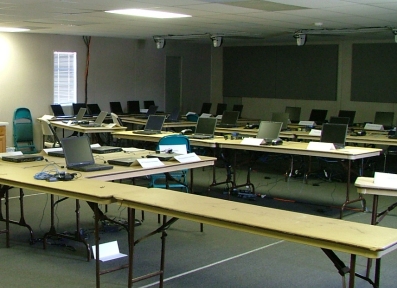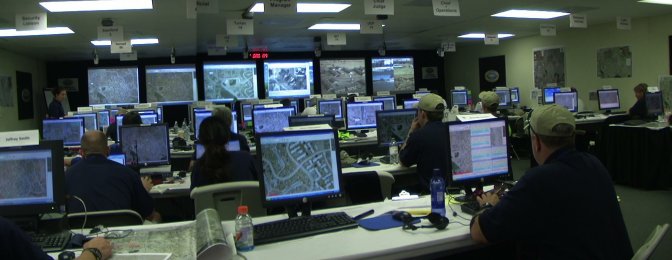
Sometimes that access can be accommodated with radio control stations (base stations) or walkies which work through the radio system.
However, in some circumstances, it may be desirable to have an "RF free" workspace where energy from transmitters can be eliminated to prevent interference to and from computers, telephones, and other electronic devices.
It may also be necessary for dispatchers or coordinators to monitor multiple channels to track the flow of information and incidents.
Dispatch facilities can be remotely located from the transmitter facilities, or can be co-sited; either carry-in or truck mounted.


